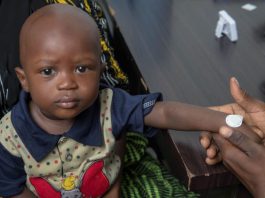The Coalition for Epidemic Preparedness Innovations (CEPI) will provide Valneva SE €41.3m funding to support the development of the world’s first chikungunya vaccine.
The vaccine for chikungunya, known as IXCHIQ®, represents a game-changer in combatting the viral disease.
The extended partnership between CEPI and Valneva will help improve access to the chikungunya vaccine in low- and middle-income countries (LMICs) and support post-marketing trials and potential label extensions for children, adolescents, and pregnant women.
Dr Richard Hatchett, Chief Executive Officer of CEPI, said, “Millions of people have been affected by chikungunya and, today, over a billion people live in areas where chikungunya outbreaks occur.
“Access to an affordable chikungunya vaccine in areas where the burden of disease is the greatest is a joint priority for CEPI, Valneva and our European Union partners.
“These clinical studies and tech transfer to an additional endemic-region manufacturer will accelerate endemic country access, inform future vaccine rollout strategies and alleviate the burden of future chikungunya outbreaks.”
What is chikungunya?
Chikungunya is a viral disease transmitted to humans by infected mosquitoes, primarily Aedes aegypti and Aedes albopictus. It was first identified during an outbreak in Tanzania in 1952.
The name ‘chikungunya’ derives from a Makonde word meaning ‘to become contorted,’ reflecting the stooped appearance of sufferers due to severe joint pain.
The virus belongs to the Alphavirus genus of the Togaviridae family. Symptoms typically appear 4-8 days after being bitten by an infected mosquito and include sudden high fever, joint pain, muscle pain, headache, nausea, fatigue, and rash.
Joint pain is often debilitating and can last for weeks or months, but fatalities are rare.
There’s no specific antiviral treatment for chikungunya; management focuses on relieving symptoms with rest, fluids, and pain relievers like acetaminophen or ibuprofen.
Preventive measures are crucial, including using insect repellent, wearing long sleeves and pants, and eliminating standing water where mosquitoes breed.
Although chikungunya rarely leads to long-term health issues, its acute symptoms can be severe and significantly impact the quality of life.
With global travel, the virus has spread to many regions, making awareness and prevention measures, such as vaccines, critical.
CEPI funding for chikungunya vaccine development
CEPI will provide Valneva with up to $41.3m over the next five years, supported by the EU’s Horizon Europe programme.
This funding aims to generate additional data to potentially extend IXCHIQ® vaccine labels in chikungunya-endemic countries and among vulnerable populations.
Planned trials and target populations
Starting in 2025, several thousand participants will join the trials, focusing on children aged 1-11 and pregnant women in areas at risk of chikungunya.
Brazil, currently facing a significant outbreak with over 340,000 cases reported this year, will host some of these trials.
Strengthening existing partnerships
This expanded partnership builds on an earlier agreement that provided Valneva $24.6m in CEPI-EU funding to develop, manufacture, and market the vaccine in certain LMICs.
Valneva, in collaboration with Brazil’s Instituto Butantan (IB), conducted an adolescent clinical trial in Brazil in 2021.
The Brazilian Health Regulatory Agency (ANVISA) is currently reviewing the marketing authorization application for IXCHIQ®, with potential approval expected in 2024.
IB is committed to developing and producing the chikungunya vaccine in Brazil at an affordable price for distribution in Latin America and selected LMICs.
CEPI-EU funding will also support the technology transfer of the vaccine drug product to an additional manufacturer, accelerating access to IXCHIQ® in Asian LMICs vulnerable to chikungunya outbreaks.









